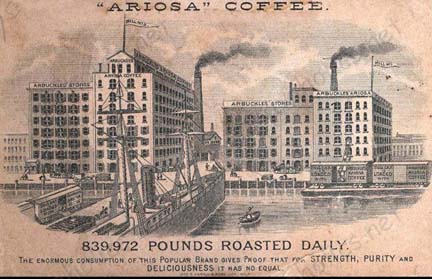
While sorting through a bevy of late 19th century advertising cards and magazine illustrations collected by my great, great aunt in several yellowing albums, I came across several for the Middle East that were published for Arbuckle’s coffee. In following up on Google, I discovered a website with images of all these cards. On the back of the cards, which were part of a set of 50 nations, was the following commercial message:
It will pay you well to keep a small coffee-mill in your kitchen and grind your coffee, just as you use it – one mess at a time. Coffee should not be ground until the coffee-pot is ready to receive it. Coffee will lose more of its strength and aroma in one hour after being ground than in six months before being ground. So long as Ariosa remains in the whole berry, our glazing, composed of choice eggs and pure confectioners’ A sugar, closes the pores of the coffee, and thereby, all the original strength and aroma are retained. Ariosa Coffee has, during 25 years, set the standard for all other roasted coffees. So true is this, that other manufacturers in recommending their goods, have known no higher praise than to say: “It’s just as good as Arbuckles’.â€
One of these that my Aunt pasted for her memories is for Mecca:
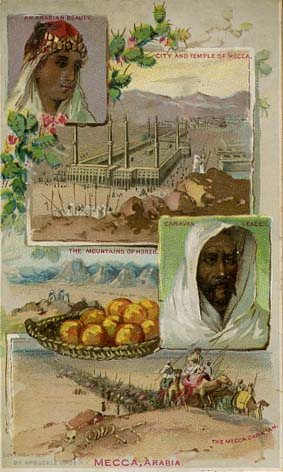
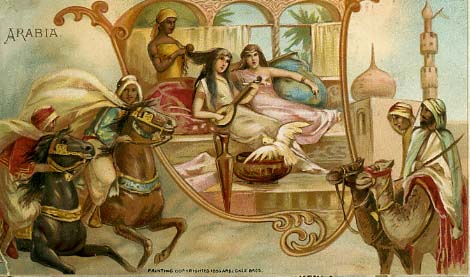
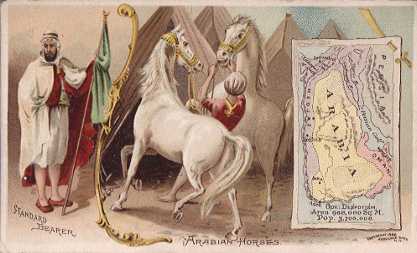
Area: 968,000 sq. mi
Population: 3,700,000
Government: Despotism
Scenes: Standard Bearer; Arabian Horses
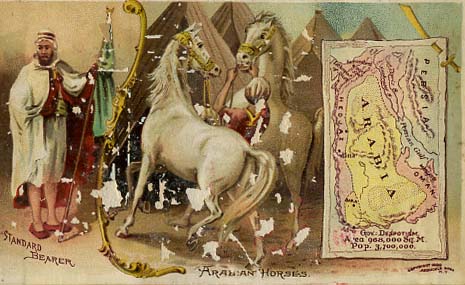
Here is the description for Arabia from the 1889 ARBUCKLES’ ILLUSTRATED ATLAS
of Fifty Principal Nations of the World:
ARABIA, the great peninsula of south western Asia, connected with Africa by the Isthmus of Suez, and with the Asiatic Continent by the Syrian Desert, has an area estimated at 968,000 square miles, of which one-third is irreclaimable desert.
The population is estimated at 3,700,000. The whole of the West maritime region of Arabia belongs to the Ottoman Empire, other regions being under the Dominion of the Sultans of Shomer, of Wahhabi and of Oman or Muscat; while Hadramant, the strip of coast region extending along the Indian Ocean from Aden to Dofar, is occupied by independent tribes. Aden, on the S. coast, belongs to England and is occupied as a military station.
In the lowlands and upon the strips of desert the heat is intense. In the central highlands the climate is delightful, and here corn, vegetables, and most of the sub-tropical products are grown with success.
In Arabia the best coffee and dates are produced and exported, besides gums, myrrh, and various spices, senna and other drugs, and pearls from the Persian Gulf. Cotton, indigo and tobacco are also cultivated. The principal domestic animals are the camel, the celebrated breed of horses, oxen, sheep and goats.
The Koran is the basis of Arabian theology and jurisprudence. “The Arabian Nights Entertainments” still rank as perhaps the most graceful and interesting collection of fabulous and romantic lore in existence.
to be continued …